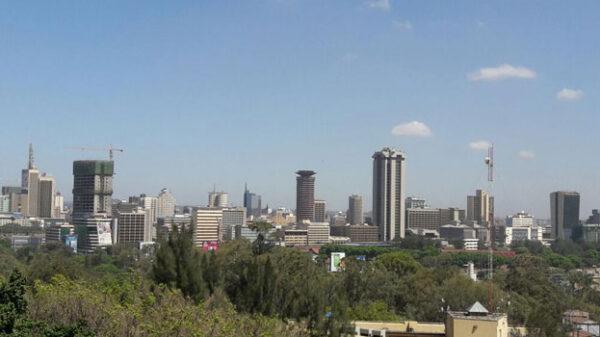NAIROBI, Kenya, Aug 21 – Drought and slow economic growth have negatively affected the horticultural sector which has reported a 30 percent decline in half year sales.
Chief Executive of the Fresh Produce Exporters Association of Kenya Dr Stephen Mbithi said on Friday that the flower sector was the major casualty owing to reduced demand from major markets especially in Europe.
“We had a difficult Valentines Day – that’s the period when we sell most of our flowers – where we were down approximately 28 percent.
The European market, he said, is also slow from June (summer) when most people are away on holiday and not in a position to buy flowers in bulk.
He is however optimistic that the situation would improve by October which would also serve as an indicator on how much the current economic meltdown had improved.
The Agricultural sector was also not spared by the vagaries of weather. Dr Mbithi said the current drought had affected the fruits and vegetable sector.
That notwithstanding the demand continues to be high but the industry is currently unable to meet it owing to scaling down of production by most small scale farmers.
Small scale farmers account for 70 percent of the total horticultural production in the country.
Dr Mbithi however believes that if the short rains fall as forecasted, the situation would improve and while he doesn’t see an increase in growth this year he expects it to equal last year’s.
“Maintaining last year’s levels is still a possibility so we are looking towards rapid sales at the end of this year but to be honest we don’t think it would be practical to expect our traditional 14-15 percent growth,” he said.
Dr mbithi took the opportunity to also clarify the government’s decision to focus on food security was partly to blame for the drop.
“There is certainly no conflict between us and the government and we don’t feel it has lessened its support to us so as to focus on food security,” Dr Mbithi said.
He noted that all horticultural farms had to practice crop rotation where they had to introduce maize and beans so as to also contribute to the country’s food basket.
Meanwhile, this year’s All African Horticulture Congress will be held between August 31 and September 3.
The meeting is being coordinated by several national and international institutions from all over the world.
Dr Mbithi said the congress will be used to address the four aspects of Horticulture; policy, research, industry and private sector participation with the view of improving the industry.
He said the forum should also used to push for more focus on the horticulture industry as it is still considered an emerging sector yet it contributes a significant amount to the Gross Development Product (GPD). He adds that the industry has done a lot to improve the lives of especially the rural poor.
It is hoped that delegates will also use the opportunity to highlight the need to introduce value addition to horticultural produce so as to stimulate future development of horticulture in Africa.
The four day congress is expected to draw participation from 33 countries with 300 delegates expected in attendance.


































